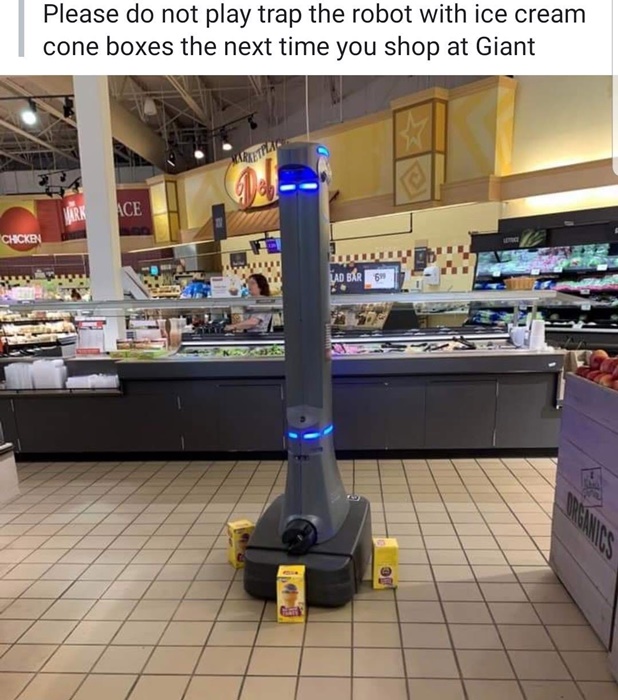1. Good Monday Morning
It’s November 8th. Thursday is Veteran’s Day, and we have veteran Spotlighters covered with this huge list of free meals for you from Military.com.
Today’s Spotlight is 1,316 words — about a 5 minute read.
2. News To Know Now
Quoted:“Fake reviews and other forms of deceptive endorsements cheat consumers and undercut honest businesses. Advertisers will pay a price if they engage in these deceptive practices.” — Samuel Levine, Director of the FTC’s Bureau of Consumer Protection after the agency notified hundreds of the world’s biggest brands that they were improperly posting testimonials and reviews online.
a) The FTC also said that it will send almost $60 million to more than 140,000 Amazon drivers for tips the company illegally withheld between 2016 and 2019. Driver payments will average $422 each. One Amazon Flex driver is due more than $28,000. (FTC announcement)
b) Real estate data company Zillow will lay off 25% of its employees after posting more than $380 million in losses in just three months. The company had begun purchasing homes based on its “Zestimate” of their value. And then suddenly the market became “unpredictable” in the words of CEO Rich Barton. The company still owns more than 7,000 homes worth nearly $3 billion. The Zestimate for my house is $75,000 more than the already inflated tax assessment value, but I missed out on that deal. (Bloomberg)
c) Snapchat has launched “Run for Office Mini”, a program to encourage its users to run for public office. The company says that Snapchat reaches 90% of 13-24 year olds in the U.S. and that only 6% of state legislators are under the age of 35. The company curates information on 75,000 upcoming elections and has partnered with a dozen candidate recruitment and training programs. JFK was elected to Congress before he turned 30, a 31 year old Bill Clinton was elected governor, and 12 members of the House of Representatives are under the age of 35. (Snap announcement)
3. Search Engine News — Google Shows How to Improve Job Posting Pages
Google published a recommendation last week that shows organizations how to more effectively recruit online. A company post shows that data contained in the rich markup description field is reproduced online. Google officially recommended including information about the job qualifications, skills, and benefits in that field.
It’s really important to note that this is the rich markup description field, not the meta description field. Confused about the difference? It’s hard enough to hire employees today. Make sure you use every option available to you. Talk with your web people or us, and we can help.
Google also said that the same core vital statistics it uses to assess visitor experience on mobile visits to a website will also apply to visits using desktop computers beginning in February.
4. Spotlight Explainer — AI Healthcare Is A Thing
There are many good and positive things that result from AI Healthcare. This summer Deep Mind announced that it would release the structure of every protein found in twenty species, including humans. That came six months after the AI-based organization solved a 50 year old biology problem and then released all of the code to the public.
But there are problems with AI healthcare too. Privacy experts remain very concerned that computers enter a state of constant surveillance from which many things can be inferred. Carebots are a great example of the intersection between healthcare and automation. They’re especially found in underserved communities revolving around care for older people or people with disabilities. A mix of cameras, wearable trackers, and risk models threaten privacy and autonomy.
More information is coming to light about programs like NarxCare, a software product from a data company that manages state prescription databases. The system mixes their data with external data including how many pharmacies a patient has patronized and how far they travel for appointments. This is mixed with prescription data to form “Overdose Risk Scores” that impact patients and physicians in unintended ways.
As Wired wrote earlier this year, “Nearly all Americans have the equivalent of a secret credit score that rates the risk of prescribing controlled substances to them. And doctors have authorities looking over their shoulders as they weigh their own responses to those scores.”
You won’t be surprised to learn that the scores are unregulated, can’t be appealed, and adversely affect patients and physicians. Researchers point out the system’s flaws including skewed interpretations for women, non-whites, patients with complex medical histories that include multiple conditions, and even pet owners.
A study published in Nature earlier this year claims that algorithms can account for 43% of knee pain reported by some patients vs. 9% of a traditional assessment by radiologists, which is better, but also leaves much to be desired when outside forces regulate the patient or physician.
The NarxCare risk scores will soon have company. Google parent Alphabet recently signed a deal with HCA to create algorithms based on patient records. One troubling part of that announcement is that they could guide physician decisions. There are also new algorithms that predict schizophrenia and new features on smartphones and watches that detect arrhythmias, cognitive decline, or even depression.
One big issue with all of these is that many people are victims of a fallacy called false precision that provides an unrealistic sense of precision. This occurs because answers are provided without qualifying that the methods used to calculate the precise number rely on imprecise methods.
4. Spotlight Explainer — AI Healthcare Is A Thing
There are many good and positive things that result from AI Healthcare. This summer Deep Mind announced that it would release the structure of every protein found in twenty species, including humans. That came six months after the AI-based organization solved a 50 year old biology problem and then released all of the code to the public.
But there are problems with AI healthcare too. Privacy experts remain very concerned that computers enter a state of constant surveillance from which many things can be inferred. Carebots are a great example of the intersection between healthcare and automation. They’re especially found in underserved communities revolving around care for older people or people with disabilities. A mix of cameras, wearable trackers, and risk models threaten privacy and autonomy.
More information is also coming to light about programs like NarxCare, a software product from a data company that manages state prescription databases. The system mixes their data with external data including how many pharmacies a patient has patronized and how far they travel for appointments. This is mixed with prescription data to form “Overdose Risk Scores” that impact patients and physicians in unintended ways.
As Wired wrote earlier this year, “Nearly all Americans have the equivalent of a secret credit score that rates the risk of prescribing controlled substances to them. And doctors have authorities looking over their shoulders as they weigh their own responses to those scores.”
You won’t be surprised to learn that the scores are unregulated, can’t be appealed, and adversely affect patients and physicians. Researchers point out the system’s flaws including skewed interpretations for women, non-whites, patients with complex medical histories that include multiple conditions, and even pet owners.
A study published in Nature earlier this year claims that algorithms can account for 43% of knee pain reported by some patients vs. 9% of a traditional assessment by radiologists, which is better, but also leaves much to be desired when outside forces regulate the patient or physician.
The NarxCare risk scores will soon have company. Google parent Alphabet recently signed a deal with HCA to create algorithms based on patient records from more than 2,000 facilities in 21 states. The troubling part of that announcement is that they could guide physician decisions. There are also new AI healthcare algorithms that predict schizophrenia and new features on smartphones and watches that detect arrhythmias, cognitive decline, or even depression.
One big issue with all of these is that many people are victims of a fallacy called false precision that provides an unrealistic sense of precision. This occurs because answers are provided without qualifying that the methods used to calculate the precise number rely on imprecise methods.
5. Did That Really Happen? — Did Train Passengers in Philadelphia Watch A Rape?
In a world quick to outrage, the idea that passengers did not intervene when a man raped a woman on a Philadelphia train outraged nearly everyone. Except now the prosecutor says that things didn’t happen quite the way they were initially portrayed. Catch up with the latest here.
6. Following Up — Developers Using AI Code Help More
There’s a bit of another misunderstanding echoing around news feeds regarding how much AI help is being used by software developers. The issue developed after Open AI said that 30% of the recent projects on GitHub were using software called Copilot to help write code.
That’s true, but parse the sentence as “thirty percent of the projects used at least some help from this software”, not that 30% of software is now written by AI. It’s still pretty cool though and a lot easier than using a search engine to find the same information.
7. Protip — What Emojis May Mean in Other Countries
The good folks at the Rest of the World have some digital translation help that it’s worth your time to peruse if you spend any time communicating with people outside your own country.
8. Screening Room — Christmas With a Twist
9. Science Fiction World — McDonald’s, IBM & AI
IBM has purchased McDonald’s AI unit (everyone has AI departments) and will partner with the restaurant chain to automate the drive through experience, which is code for replacing employees. There is no word on whether the new robot overlords can fix the ice cream machines.
10. Coffee Break — Timelines & Stats About Your Age
You’re Getting Old is a fun website that shows you all sorts of statistics based on your age, including how many breaths you’ve taken, days you’ve aged, news, and a lot more.
11. Sign of the Times

